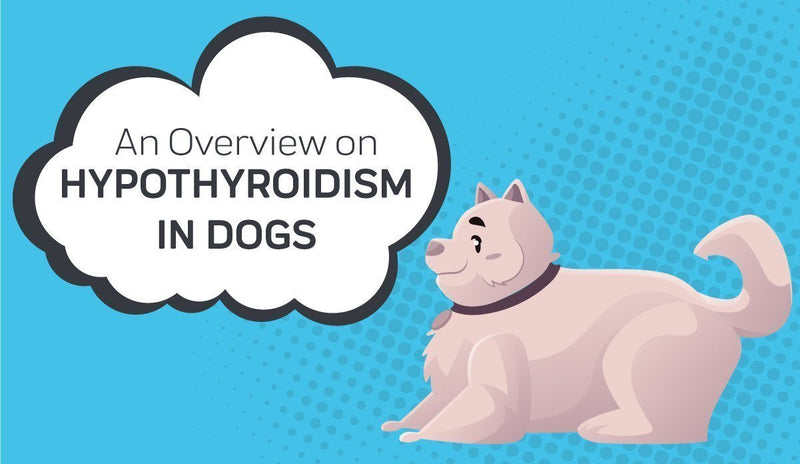- What Are the Symptoms of Heartworm in Cats?
- How Heartworm in Cats Is Diagnosed
- How to Treat Heartworm in Cats
- How to Keep Your Cats Safe from Heartworms
Cats are incredibly independent household pets who put on a show of being nonchalant and fine all the time, which is why it can hit extra close to home when they fall ill. Heartworm disease in cats is especially scary, but what exactly is it?
Heartworms, also known for their scientific name Dirofilaria immitis, are parasitic worms that grow up to a foot long and make their homes in the lungs, blood vessels, pulmonary arteries, and heart of affected pets. This disease is largely spread by infected mosquitoes and can cause heart failure, lung disease, organ failure, and even death.
A variety of mammals, aside from cats, can fall victim to this disease, including dogs, wolves, ferrets, otters, and even humans in rare cases. Knowing the symptoms and signs of heartworm disease is a good start to preventing this illness.
What Are the Symptoms of Heartworm in Cats?

No region is exempt from the concern of feline heartworm disease – in fact, heartworm diagnosis occurs in every state. This is why knowing the symptoms of this disease is relevant information to familiarize yourself with.
Unfortunately, a cat can have adult heartworms, but that doesn’t mean they will show symptoms. Some lucky felines are able to spontaneously rid themselves of these parasites and heartworm larvae from their pulmonary arteries without ever having shown symptoms.
On the opposite side of the spectrum, others may have heartworm infections that cause unexpected, sudden death – again, without the display of any symptoms.
Signs of heartworm disease can appear nonspecific and even mimic one of the many other feline diseases. Some of these obscure, nonspecific symptoms include loss of appetite, decreased activity, vomiting, and weight loss. Heart failure symptoms are less common, but there are rare cases of it.
Symptoms of heartworm in cats can vary depending on the stage of the worms themselves. An immature worm parasite might resemble feline asthma and include these signs:
- Difficulty breathing
- Intermittent coughing
- Vague malaise
- Lethargy
- Vomiting
- HARD (Heartworm Associated Respiratory Disease)
- Weight loss
More mature, adult heartworms may present themselves with these signs:
- Lethargy
- Coughing
- Intermittent vomiting
- Difficulty breathing
- Fluid in the belly
- Shock
- Acute respiratory distress
- Death
Immature heartworm larvae can arrive in the heart and lung pulmonary arteries within 3-4 months following a bite from an infected mosquito. A lot of these immature parasites die, which causes the cat’s lungs to have a strong inflammatory response. This is known as HARD, or heartworm associated respiratory disease, due to the respiratory symptoms (such as coughing, increased respiratory rate, and trouble breathing) being the most obvious. However, feline bronchitis and feline asthma present quite similarly to HARD, making them difficult to distinguish.
If adult heartworms die, they attack the blood vessels. Toxins are released into the bloodstream that causes damage to the lungs, which can lead to dangerous respiratory problems and even death. Even just one worm dying can be fatal.
How Heartworm in Cats Is Diagnosed
Cats keep their issues to themselves, unlike dogs. This makes it harder to detect and subsequently diagnose heartworm disease in felines. Cats are not the best of hosts to these parasites, but they are still susceptible. In cases of feline heartworm infections, the actual worm count is much smaller compared to the canine infection counterparts, however, just one or two worms can be fatal due to the smaller body size of cats.
Another factor that contributes to the difficulty of diagnosing heartworm disease in cats is that they are significantly less likely to contract adult heartworms. This means that feline heartworm infections are often limited to single-sex infections, where female worms may not even be present and are, therefore undetectable.
Veterinarians utilize both antibody tests and antigen tests to successfully diagnose feline heartworm disease. The antibody test reveals whether or not your cat has had an immune response to the parasite while also checking for heartworm larvae exposure. Antigen tests are used to detect specific types of worm proteins that are released into the bloodstream by adult female heartworms.
If the vet receives results that indicate a positive infection, an ultrasound, radiograph, or X-ray may be elected as the final step before confirming the diagnosis. A good cardiologist might even be able to see heartworms during an ultrasound, in some cases.
How to Treat Heartworm in Cats

It is possible for the condition to spontaneously resolve itself, so some cats diagnosed with heartworm infection that don’t display serious clinical symptoms may simply be monitored to see if that is the case. In cases where blood vessels associated with the lungs, or even the lungs themselves, show evidence of disease, X-rays are used periodically to monitor the progression.
There are medications that can be used to manage symptoms, although there is, unfortunately, no drug approved by the FDA for heartworm disease treatment. If adult heartworms are spotted during an ultrasound, they could then be surgically removed as a treatment option. This surgery can be risky, and if, for some reason, the parasites are not removed in one piece and get broken up, there can be some very serious surgical complications that include shock and death.
If a cat has obviously clear signs and symptoms of this disease, additional support can be given to help them power through it. Oxygen therapy, antibiotics, cardiovascular drugs, and intravenous fluids are all alternative treatment options a veterinarian may decide to go within these circumstances.
A widely accepted natural treatment to help manage the symptoms of heart disease in cats is the use of CBD oil. Some veterinarians have been known to administer both traditional medications and CBD oil as a method of minimizing the negative side effects of their disease. Some of the known benefits of administering CBD oil for cats are:
- Decreases inflammation
- Helps to manage pain
- Allows pet to sleep better
- Can calm anxiety
- Reduces seizures
- Relieves diarrhea
How to Keep Your Cats Safe from Heartworms

This disease is most common along the Gulf and Atlantic coasts, so pet owners in those regions should be especially aware of how to protect their kitties. The key to keeping your cats safe from this infection all year round, especially in the more tropical, muggy regions of the US where mosquitoes run rampant, is to routinely administer heartworm preventatives such as ivermectin, selamectin, or milbemycin to your household felines. According to fda.gov, the best way to keep your beloved cat safe from heartworms is by focusing on prevention methods.
Pre-testing for heartworms in cats is not as helpful as it is for dogs, but it is still always a good thing to do before starting on heartworm prevention medicines. Again, this is not a one and done medication – your cat will need year-round heartworm prevention. Check with your veterinarian to find out which heartworm preventive medication is best for your furry friend.
Another good way to keep your cat protected is to stay educated yourself. It is normal to have a lot of questions regarding heartworms and potential treatments, but make sure you don’t get yourself confused about the myths and facts. Be on the lookout for misinformation and use the internet to get to the bottom of things. For example, a common myth is that someone may believe that their area is free of heartworms, so they do not opt to put their cat on heartworm prevention medicine.
Here are a few of the more frequently asked questions and answers on the topic:
Are heartworms contagious?
No, this infection cannot be transferred from one cat to another. Because cats are not the ideal hosts for these parasites, they do not reproduce within cats. Dogs, on the other hand, are much better hosts that can pass along baby worms thanks to the help of infected mosquitoes.
When should my cat start receiving preventive medicine?
Products for heartworm prevention are safe to be given to kittens as young as 6 weeks old, so you are good to start administering them as soon as possible following the formal test for the disease by your veterinarian. Continue giving these products to your cat year-round throughout the rest of their lives.
How common is this disease really?
While feline heartworm disease is certainly less common in cats than in dogs, it is still something that occurs in every state in the country.
Does your cat have heartworms?
The surefire way to know whether or not your cat has heartworms is by taking them in for testing at your veterinarian’s office. The signs of feline heartworm disease can be misleading and match the symptoms of a number of other medical conditions, or your kitty may not show any symptoms at all.
What are the home remedies to prevent feline heartworm disease?
The only “natural” home remedy you can really do is to consider anything that may ward off or prevent mosquito bites. Otherwise, just make sure you are aware of the signs of this disease so that you can try to catch it as soon as possible.
Does my cat still need preventative medicine if it is an indoor cat?
Indoor cat, outdoor cat, doesn’t matter – both are at risk for this disease. Outdoor cats are more at risk as they have a greater chance of getting bit by an infected mosquito, but this doesn’t mean you shouldn’t still get your indoor cat tested. Trust us, they’ll thank you!
Sources:
The Facts about Heartworm DiseaseHeartworm Disease in Cats
Heartworm in Cats
Heartworm Disease in Cats
Symptoms, Treatment and Prevention

















